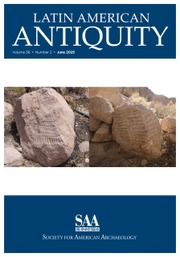Article contents
Under Heavy Fire: Brazil and the Politics of Anti-Memory
Published online by Cambridge University Press: 08 April 2020
Abstract
What kind of times are these when a talk about trees is almost a crime? Among other things, they are times of forgetfulness. Forgetting does not mean that reminiscences just vanish as time goes by. It is, on the contrary, a major cultural force grounded in a politics of anti-memory. One needs to forget in order to keep repeating oneself. In this article, I argue that the National Museum in Rio de Janeiro did not burn to the ground merely because of the lack of resources, but because being burned to the ground has always been a virtual feature of the existence of the museum since it was created in 1818. It burned as part of a long-term politics of anti-memory in Brazilian history.
¿Qué tiempos son estos en que una conversación sobre árboles es casi un crimen? Entre otras cosas, son tiempos de olvido. Olvidar no significa que las reminiscencias se desvanecen con el paso del tiempo. Es, por el contrario, una gran fuerza cultural basada en una política de antimemoria. Hay que olvidar para seguir repitiéndose. Este artículo sostiene que el Museo Nacional de Río de Janeiro no se quemó hasta los cimientos simplemente por la falta de recursos, sino también porque ser quemado hasta los cimientos fue una característica virtual de su existencia desde su creación en 1818. Se quemó como parte de una política a largo plazo de antimemoria en la historia de Brasil.
Keywords
- Type
- Article
- Information
- Copyright
- Copyright © 2020 by the Society for American Archaeology
References
References Cited
- 3
- Cited by




